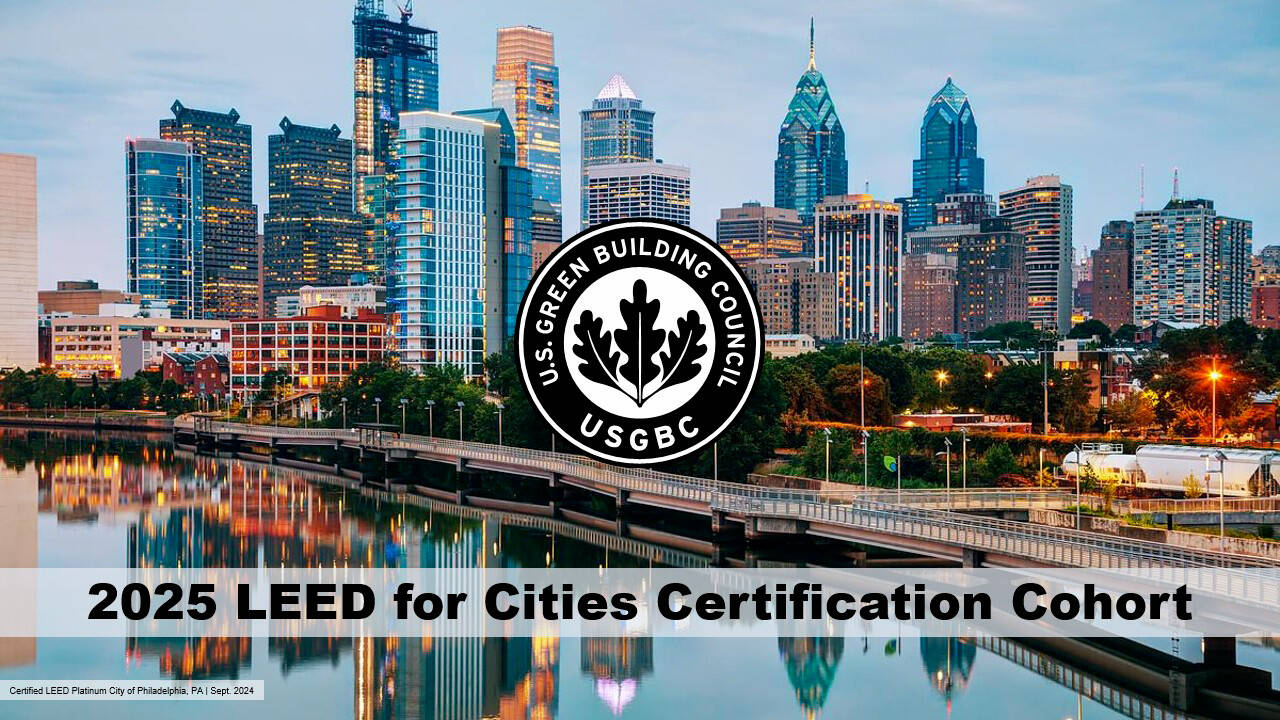Mercer Island has been invited into the U.S. Green Building Council’s 2025 LEED for Cities Certification Cohort in which local leaders strive to achieve city-scale sustainability.
Joining 12 other cities and three counties — including King County — nationwide in the cohort acceptance realm, Mercer Island initially took part in the council’s government leadership summit last July in Issaquah.
The city followed that up with participation in a virtual LEED for Cities accelerator series to set goals, measure progress and improve the community’s quality of life, sustainability and resilience, according to Hilari Varnadore, vice president of LEED for Cities. (LEED is an acronym for Leadership in Energy and Environmental Design.)
Varnadore noted that Mercer Island is well-equipped to succeed in this year-long process, which kickstarted with an orientation this month and will further include copious training and education. A press release notes that the council helps cohort participants build plans and capacity to achieve sustainability goals, including LEED for Cities certification.
“We’re happy when they say they’re ready,” she said. “When you go through the process of learning and gathering and reporting and then getting a verified certification, then you have a lot of results that you can take action on. You can prioritize investment. You can make data-driven decisions. Mercer Island was able to show us in their application that they’re ready to do all of that.”
Bank of America, a longtime partner and a member of the council, has provided more than $4.55 million in total grant funding to the council and currently has more than 21 million square feet of certified green building space, the press release noted.
“We are glad to have two outstanding occasions to support clients and local leaders as they pursue growth, resilience and sustainability success here,” said Jim Morehead, president of Bank of America Seattle, regarding Mercer Island and King County’s participation in the summit, accelerator series and cohort.
Mercer Island sustainability program manager Alanna DeRogatis said the city has already gathered enough data and earned enough credits through the accelerator program to certify under the LEED for Cities program.
“The goal is to achieve a certain level above that — above just base-level certification,” she said. “The city already has a lot of great policies in place with our comp plan and the Climate Action Plan. So this next year is going to be kind of going through and seeing what level we think we can achieve and getting all of the documents in order to verify that and then submitting for certification.”
One of the goals the city has been working toward is to reduce greenhouse gas emissions 50% by 2030, 75% by 2040 and 95% by 2050 (compared to 2007 levels), DeRogatis said. According to the city website, one of the primary actions identified in the Climate Action Plan is the annual tracking of community and municipal greenhouse gas emissions.
“And then municipal operations, like government, we’re hoping to achieve carbon neutrality by 2030,” she added.
Varnadore said that LEED for Cities is measuring the entire jurisdiction’s sustainability, not just the city’s buildings.
“It’s the whole community. (Most) topics are from public health and education, jobs, the economy. We’re really looking holistically at how the jurisdiction is doing across that kind of economic, social and environmental pillars of sustainability,” said Varnadore, adding that Mercer Island has also been tracking targets in the waste and tree canopy spheres and more.
Peter Templeton, president and CEO of the council, said in a press release that city governments play a critical role in advancing public and environmental health, resilience and economic prosperity across their communities.
“We applaud this cohort for prioritizing these outcomes and committing to meaningful actions on sustainability and community well-being,” he added. “The LEED for Cities framework helps local governments track performance, identify opportunities for improvement and implement best practices — delivering near-term benefits and lasting positive impact.”


